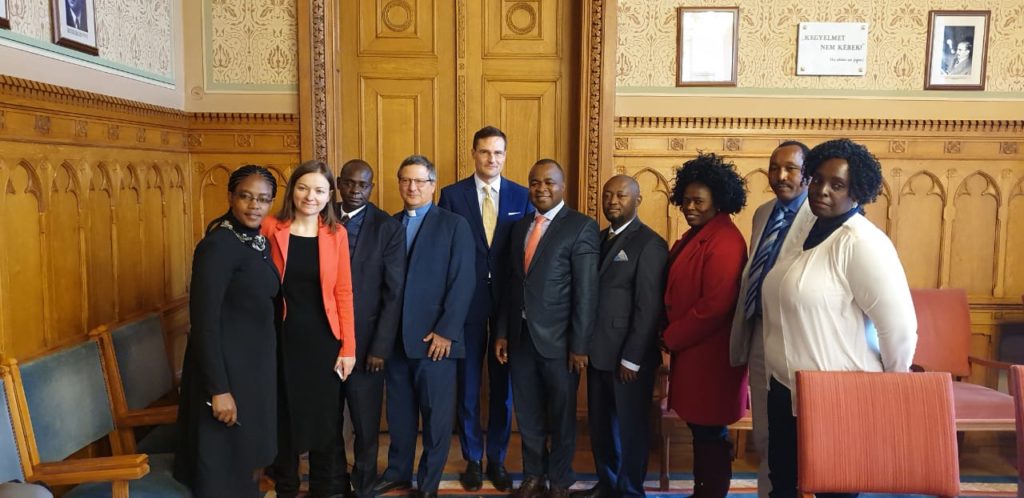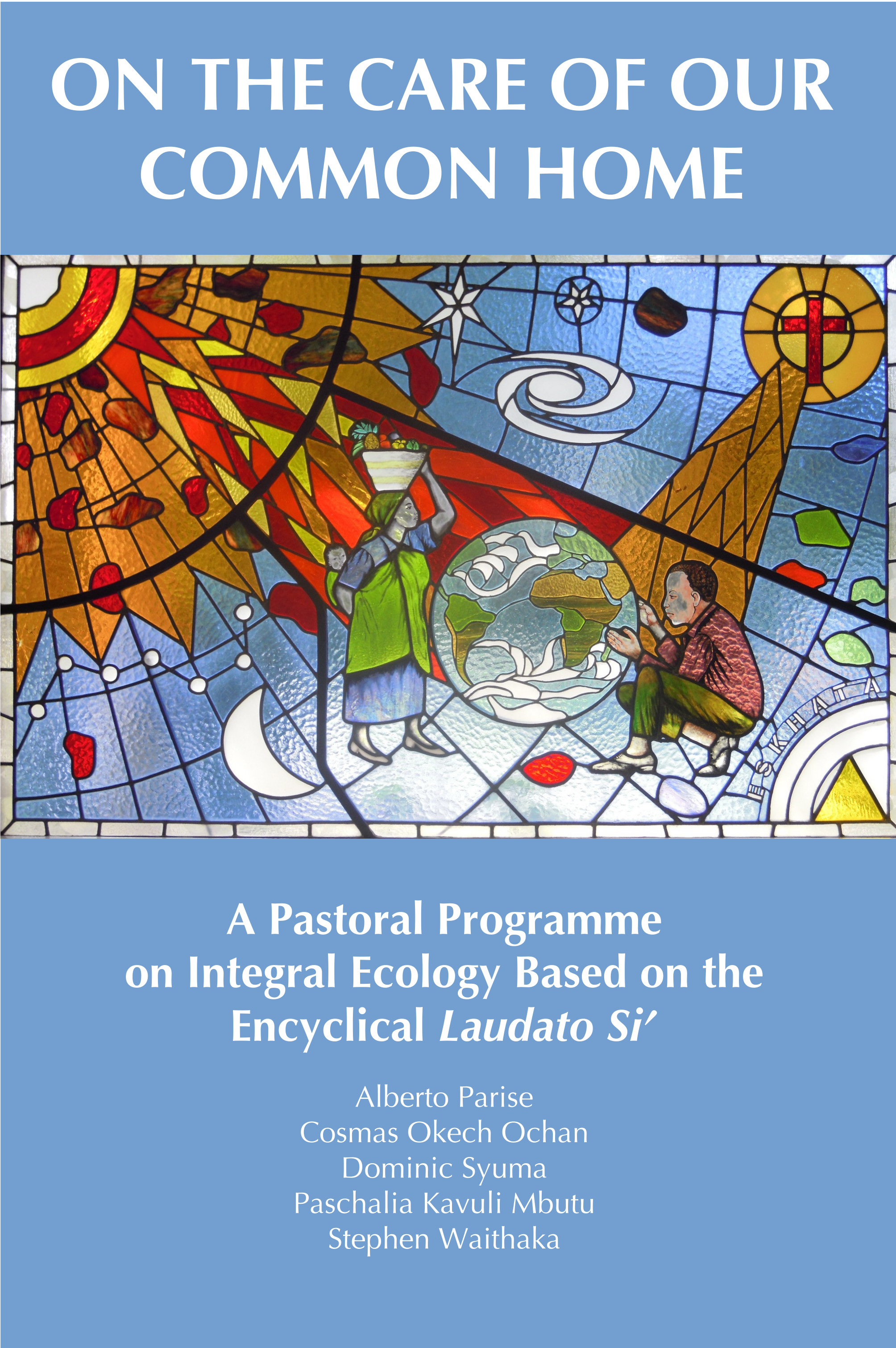On March 14th, 2023, the Comboni community in Bari resumed the ‘knowledge meetings’, an initiative to explore social issues that had been interrupted because of the pandemic. Two speakers were invited to this meeting, Dr Nicola Colaianni, a magistrate OF TEH Court of the Court of Cassation, and Fr Giuseppe Caramazza, a Comboni Missionary. Below is the reflection shared by Fr Giuseppe.
I worked in Kenya from 1991 to 2021. For three decades I journeyed with Kenyans in a period of great social transformation. During this time, Kenya went from the dictatorship of Daniel Toroitich arap Moi to democracy. Wedged between countries of great instability – South Sudan, Uganda, Somalia, Ethiopia – Kenya has been fortunate not to have had to face bloody and destructive wars. It has on its side an average academically well-educated population, and the desire of many to form a united and developed country.
There is no shortage of problems. Poverty has been greatly reduced. Yet, today 8 million Kenyans live below the absolute poverty level. Insecurity has declined, but there are regions where human life is of little value. In large urban areas, those who live in slums lack minimum social services and security, and experience violence and abuse on a daily basis.
The political world has always been monopolised by people who seek power, money, control at the expense of the common good. There is no real political debate, rather a continuous campaign in the run-up to elections, with consequent promises, betrayals, and blackmailing.
For years, the Comboni Missionaries have been trying to open up avenues for evangelising politics. In a concrete way, in 2012, Father Francesco Pierli started a dialogue with some Catholic parliamentarians. These were practising and animated by a good sense of service to the country. They were used to negative judgments about politics and politicians. At the same time, they were tired of being treated like cash cows whenever the people in their seats needed funds. At the time, Fr Pierli was a lecturer at the Tangaza University College in Nairobi.
From that encounter, a fruitful collaboration was born. The parliamentarians were happy to be able to collaborate with a Catholic institution that was both a source of spiritual nourishment and capable of deepening the Church’s social teaching. At the same time, they were not happy with a chaplaincy-style approach. They did not simply want a priest to come and celebrate Mass. They wanted a more articulate ministry. This was the beginning of a process that would lead to the formal creation of the Catholic Members of Parliament Spiritual Support Initiative (CAMPSSI). A group supported by collaboration with Tangaza University College, under the terms of a memorandum of understanding signed between the two institutions. I started working with CAMPSSI in May 2013. I was also a lecturer at Tangaza.
ACTIVITIES
CAMPSSI’s activities have developed over time. The most important ones were:
Spirituality: the parliamentarians who participated in the CAMPSSI programme requested a weekly Eucharistic celebration. In the beginning, the Mass was celebrated in a venue not far from parliament. With patience, the participants managed to get permission to use the chapel inside the parliament. This had been built since before independence, but never used for religious activities. Spiritual retreats, meetings for the politicians’ families, and workshops for couples were soon added to the Eucharistic celebrations. Kenyan parliamentarians live in a whirlwind way: during the week in Nairobi, at weekends in their constituencies. Always busy with meetings and events, they risk not seeing their families for months, even though they live under the same roof. So, offering time to spend with their families, and especially with their wives/husbands, becomes an important moment to put the family relationship back at the centre.
School of politics: the school of politics was an opportunity to bring scientific or professional reflection into the discussion of new laws. We put politicians in contact with competent people who could shed light on legislation, social realities, scientific viewpoints and modern governance methodology. Several parliamentarians are elected politicians without ever having studied political sources, governance and other aspects of good political practice. Moreover, no one has all the expertise that would be needed to make sensible judgements on new legislation. The School of Politics has become a way to support parliamentarians by opening their minds and experience to the latest findings and theories of governance today. The most controversial laws are analysed by an expert in the field and individual MPs can get a better idea of what changes they would like to support and whether or not to vote for a new law.
Relations with institutions: CAMPSSI is a recognised caucus within parliament. During the present legislature, the group has seen its presence and influence grow in importance. This is a sign that CAMPSSI has been able to positively influence parliamentary work in the past. There have been contacts with the Kenyan Presidency and the East African Parliament.
Presence on the ground: every month, members visit a political constituency in the country led by the local parliamentarian. These visits have served to animate the electorate, listen to their expectations and show that cross-party collaboration is possible, and good for the nation.
Church presence: CAMPSSI has maintained a regular dialogue with the bishops of Kenya. There were frictions, especially in the beginning, but slowly the two groups began to understand each other’s strengths and limitations and were able to collaborate on various projects. Thanks to the Institute of Social Transformation, there was collaboration with the Pontifical Council for Justice and Peace based in Rome. We met with Cardinal Turkson both in Nairobi and Rome. In view of Pope Francis’ visit to Kenya, the Secretary of State – Cardinal Parolin – wanted to meet with CAMPSSI members. The Cardinal listened to the proposals and reflections of the members on the situation in Kenya. Much of our presentation found its way into the messages read by the Pope in Nairobi.
UNDERSTANDING ACROSS THE POLITICAL DIVIDE
One of the most important results of this activity has been the creation of a sense of collaboration based on shared ethical choices. In this way, the party barrier was overtaken, so that together we could support worthy and important initiatives for the nation. For instance:
Marriage law – in 2013, parliament wanted to revise the law regulating marriage, moving from the old British-style system to a law with an African flavour. The politicians also wanted to introduce a proper focus on all sections of Kenyan society (Christians, Hindus, Muslims, traditional cultures and other minority groups). All churches, especially the evangelical ones, insisted on monogamy. After studying the law with legal experts, CAMPSSI advocated an inclusive stance, supporting the right to polygamy, and polyandry, not to exclude anyone in society.
Bank interest law – Kenya’s banks have always controlled the financial world by imposing interest rates resembling loan sharking. Hon. Jude Njomo wrote a bill to cap bank interests on loans, so as to encourage credit and finance growth in the country. The cap would be calculated net of inflation. In doing so, the banks saw their profit margins on loans and mortgages narrowed, and their reaction was not long in coming. The banks tried hard to bribe Mr Njomo to withdraw the bill. This passed because of the awareness-raising work carried out by Catholic parliamentarians who worked across all parties. The result was a change that brought real benefits to both local entrepreneurs and consumers.
Abortion law – during a parliamentary recess, a senator attempted to bypass the parliamentary debate by manipulating a bill already under discussion. If the new text – not debated in parliament – had been voted on, the door would have been opened to the introduction of abortion without having discussed it in parliament. Thanks to the watchful eyes of some parliamentarians, and contact with the bishops, CAMPSSI promoted a letter from the bishops not to Catholic parliamentarians, but to all parliamentarians of goodwill. The vast majority of politicians acceded to the bishops’ request and refused to vote for the new bill.
The same happened when the United Nations attempted – through the meeting of the International Conference on Population and Development (ICPD) held in Nairobi in November 2019 – to impose new rules to regulate births, sexuality and other aspects of family life in Kenya and other African countries. Thanks to systematic work at the various ministries and the Kenyan presidency, this plan was blocked.
In Vitro Fertilization law – one parliamentarian shared in the chamber her desire to become a mother, and the difficulty of achieving this through natural means. She asked her colleagues to support her in her bill to legalise assisted reproduction. Many parliamentarians, on the emotional wave generated by the passionate plea, declared support for her wish. After a study session with a biologist, parliamentarians decided that this initiative was not in line with Africa’s own culture of life, and that it raised ethical issues that could not be accepted by them as believers.
CONTACTS WITH OTHER AFRICAN COUNTRIES
CAMPSSI’s work did not stop with Kenya. This followed participation in the ICLN, an international group of Catholic politicians. During the 2014 ICLN annual meeting, the assembly asked the Kenyan representatives to expand their work to other African countries and involve them in activities similar to those of CAMPSSI. A period of contact with parliamentarians from other countries then began.
In 2016, we conducted a spiritual retreat and political activity workshop with Ugandan parliamentarians in Namugongo, a centre known for the killing of the Ugandan Martyrs. Since that retreat, the local MPs decided to relaunch their Catholic pastoral programme. This has led to a renewed presence in parliament, but also in the districts they represent.
We had good contacts with parliamentarians from Zimbabwe, Zambia, Malawi, Namibia, Sierra Leone, Ghana, South Africa and Senegal. This led to the founding of the ICLN-Africa Chapter. So far, we have organised two continental meetings. In 2020, all activities had to be suspended due to the Covid 19 pandemic. In the meantime, both Fr Pierli and I left Kenya. CAMPSSI nonetheless continues its activities in synergy with the Institute of Social Transformation, led by Comboni missionaries in Tangaza, and the presence of a Comboni missionary at the activities.
With the end of the pandemic, work with parliamentarians resumed, slowly at first, and has become more determined in recent months. At the beginning of April 2023, a delegation from Congo visited the Kenyan parliament with the intention of studying the activities of CAMPSSI and setting up a similar group in Kinshasa. In June, an ICLN Africa meeting will be held in Kampala, Uganda. These events give hope that CAMPSSI can continue and make an important contribution to the country’s politics, supporting ethical choices in the light of the Social Doctrine of the Church and the faith lived out by local faith communities.




